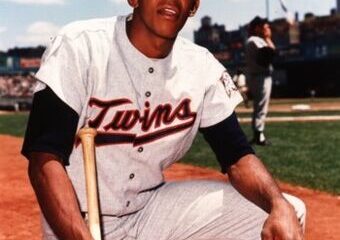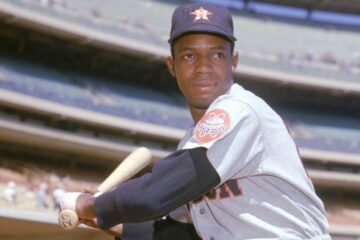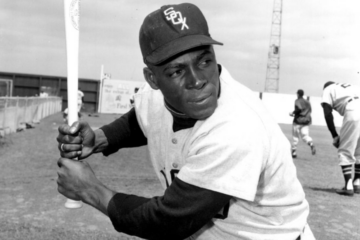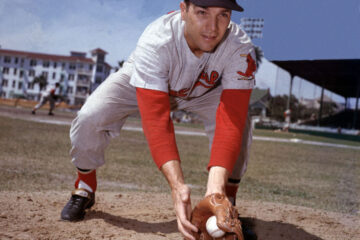The Hall of Fame Index: Who is the most qualified first baseman out of the Hall of Fame?
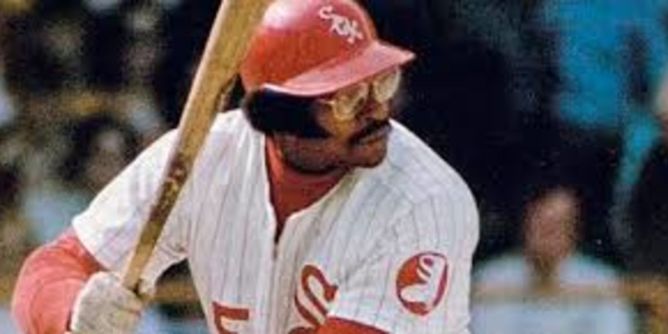
One of the challenges of Hall of Fame analysis is bridging the gap between what the public wants and what the numbers bear out. The Hall of Fame Indexwas designed to crystallize the debate. One of the problems we often find is that people end up trumpeting players that have no business being trumpeted. This has a way of ignoring others that should be trumpeted in their stead.
We are looking at players who have already cycled off of the BBWAA ballot. We are ignoring Mark McGwire and Rafael Palmeiro because of the obvious PED implications. Even then, there are a few names we will be leaving out. We did this to include the names that people often mention. However, we will introduce the others to make a point.
Career Value
| BWAR | FWAR | WS/5 | Total | |
| Dick Allen | 58.8 | 61.3 | 68.4 | 188.5 |
| Keith Hernandez | 60.3 | 59.4 | 62.2 | 181.9 |
| Fred McGriff | 52.6 | 56.9 | 68.4 | 177.9 |
| Gil Hodges | 43.9 | 42.1 | 52.6 | 138.6 |
A quick message for the Gil Hodges for Hall of Fame crowd. Please stop. Just stop. You can see the separation here. I’ve left out John Olerud and Todd Helton who probably should have been in this group. Will Clark could have been in there too. Norm Cash and Carlos Delgado also could be thrown in there too before Hodges. Our time would be much better spent evaluating their Hall of Fame cases. Unfortunately, the Hodges for Hall of Fame crowd won’t let us.
He did get 63 percent of the vote in his last chance at the ballot in 1982. So, his candidacy did have a ton of support. It had more support than just about everyone that has been on the ballot and failed to get in. That is more support than Clark, Cash, and Delgado. It’s more support than Olerud and Helton. All of them are more qualified.
The other three look more or less qualified based on spec. Of course, we are only looking at career value. Peak value has a great deal to do with whether a player is fit for Cooperstown. We remember guys when they are at their best. That is where the bulk of their fame comes from. We will continue giving you Hodges numbers, but we will spend the bulk of our time with the other three.
Peak Value
| BWAR | FWAR | WS/5 | Total | Index | |
| Allen | 54.6 | 54.9 | 59.0 | 168.5 | 357.0 |
| Hernandez | 52.0 | 50.9 | 51.2 | 154.1 | 336.0 |
| McGriff | 38.6 | 43.2 | 46.0 | 127.8 | 305.7 |
| Hodges | 41.6 | 39.5 | 45.0 | 126.1 | 264.7 |
There is considerable debate as to whether Dick Allen is a third baseman or first baseman. More of his value came as a third baseman. He played more games at first base than any other position. I usually default to total games played, but others will default to value. There really is no right or wrong answer there and at the end of the day it really doesn’t matter. He’s the most fit for Cooperstown by a considerable margin. He likely would end up that way if he was classified as a third baseman.
Players are always compared with players from their own position. So, he was always compared to players from his own position whether he played at third, first, or the outfield. He was even a designated hitter late in his career. If we are looking for the most qualified player not in the Hall of Fame, we don’t have to look much further.
When we debate Hall of Fame credentials, most people default to the counting statistics. McGriff had 493 home runs. He drove in more than 1500 runs and had nearly 2500 hits. These are all great, but the peak value numbers indicate a problem. He was always good, but was he ever really great? It’s nice to be good for a long time, but voters are more impressed if you can demonstrate some greatness.
Offensive Statistics
| OPS+ | Rbaser | OW% | wOBA | |
| Allen | 156 | 16 | .741 | .400 |
| McGriff | 134 | -22 | .663 | .383 |
| Hernandez | 128 | -4 | .668 | .365 |
| Hodges | 120 | 3 | .627 | .378 |
When we break down offensive and fielding numbers, we normally see why the index numbers turned out the way they did. Allen lives in a different category offensively. Most of that can be attributed to very strong on base skills and when you couple that with power you get impressive value numbers. It’s also instructive to point out that Hernandez is better than Hodges despite lacking home runs and RBI. It’s about the number of runs you create.
Allen created 100 or more runs six times in ten seasons with 500 or more plate appearances. He led the league twice and created 130 or more runs three times. He created 90 or more runs four additional times. He led the league in OPS four times and OPS+ three times. McGriff led in OPS and OPS+ once. He never led in runs created. So, again, we see good performance, but not necessarily great performance.
That’s the same territory Hodges is in. Hodges led in games played twice and strikeouts once. Numbers always have to have a context. This is why we go with aggregate numbers and not raw numbers. The general idea is that we need to know how many first basemen would have roughly the same counting numbers in Hodges’ situation as he did.
Fielding Statistics
| Rfield | DWAR | TZ1B | DWS/5 | |
| Hernandez | 117 | 1.3 | 121 | 7.0 |
| Hodges | 47 | -5.4 | 53 | 6.9 |
| McGriff | -34 | -17.3 | -27 | 6.0 |
| Allen | -110 | -16.3 | -40 | 5.9 |
Defensive value is a convoluted thing. We compare players with the average at the position, we compare them with the replacement level player at their position and compare them with an overall replacement level player. All three produce wildly different numbers at times. When we look at win shares, we see very little difference between good fielders and bad fielders at first base in terms of value.
We say this to point out that while many say Hernandez is the best fielding first baseman in history and that Allen is one of the worst, the overall value is not that different. So, while Hernandez has strong Hall of Fame credentials, they may not be directly related to his fielding. In short, his offense deserves more attention than what it’s getting.
In general, there is a difference between value and quality. Value can be measured in runs and wins. Quality is measured in comparison of one player with another. Hernandez might or might not be the best fielding first baseman in history. The question is how much does that afford him in runs or wins?
Playoff Statistics
| PA | SLASH | HR | Runs | RBI | |
| McGriff | 218 | .303/.385/.532 | 10 | 36 | 37 |
| Hodges | 151 | .267/.349/.412 | 5 | 15 | 21 |
| Hernandez | 138 | .265/.370/.359 | 2 | 13 | 21 |
| Allen | 12 | .222/.417/.222 | 0 | 1 | 0 |
The normal course is to see if any numbers raise or lower a player’s profile. Allen didn’t really play in the postseason beyond his one opportunity. That leaves the other three guys. Hodges and Hernandez have decent numbers when you consider the venue. That leaves McGriff with some separation. The problem is that those performances are not necessarily memorable after the fact.
Everything else is based on numbers, but here we often base positives or negatives on individual events. The trouble is that even those few events are based on even smaller events. When did those ten home runs occur? Did they occur in key moments? Do we remember them? The point being that we shouldn’t put more stock in postseason numbers than we do. We often treat them as tiebreaker and nothing else.
BWAR MVP Points
| Top 10 | Top 5 | MVP | Points | |
| Allen | 3 | 2 | 1 | 29 |
| Hernandez | 2 | 4 | 0 | 26 |
| McGriff | 3 | 1 | 0 | 14 |
| Hodges | 3 | 0 | 0 | 9 |
The BWAR MVP points are great because of their simplicity. They tell us the same thing that the other numbers do in simpler terms. It tells us that Allen is the most valuable member of the group and the only one to deserve an MVP. It tells us there is some level of separation between Hernandez and McGriff. It also tells us that Hodges is bringing up the rear in this group.
Furthermore, if we were to include those other five first basemen and run their numbers, we would probably see the same thing. Any way you slice it, Allen is the most qualified first baseman outside the Hall of Fame. If you place him as a third baseman then it becomes Keith Hernandez. There are just too many names in between Allen and Hodges to take his candidacy seriously.


